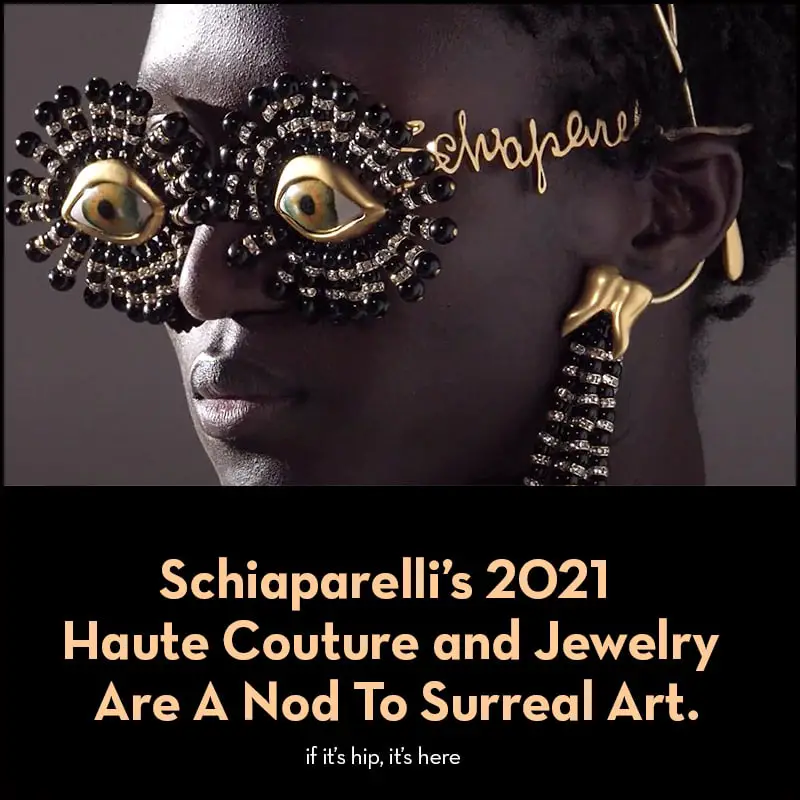Artistic Director Daniel Roseberry’s third collection for Schiaparelli is a feat of craftsmanship, inspired design and sheer beauty. The stunning pieces punctuated by surreal jewelry and unique accessories are as much art as they are fashion. His Schiaparelli SS 2021 Haute Couture collection pays tribute to Elsa Schiaparelli’s surreal collaborations with Dadaists Salvador Dali, Jean Cocteau and Man Ray.
Not the first to incorporate Dadaism in fashion, we’ve seen several others such as Jean Charles de Castelbajac’s Woman/Ray – a woman’s collection inspired by Man Ray. But Elsa Schiaparelli was working in collaboration with Dadaists Jean Cocteau, Salvador Dali and Man Ray way back in the 30s and 40s. Before we launch into the fabulous new 2021 Haute Couture collection, below are some of the Schiaparelli collaborations with artists of the Dadaism and Surrealism movements whose inspiration is visible in this collection.
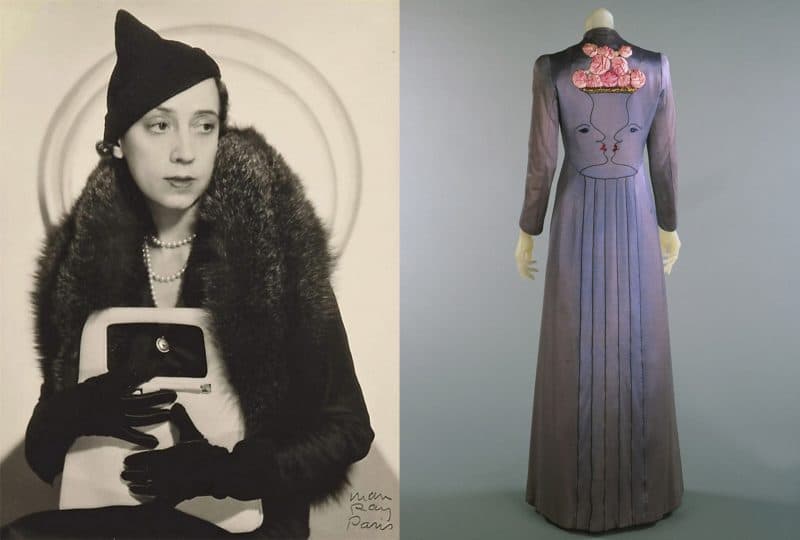
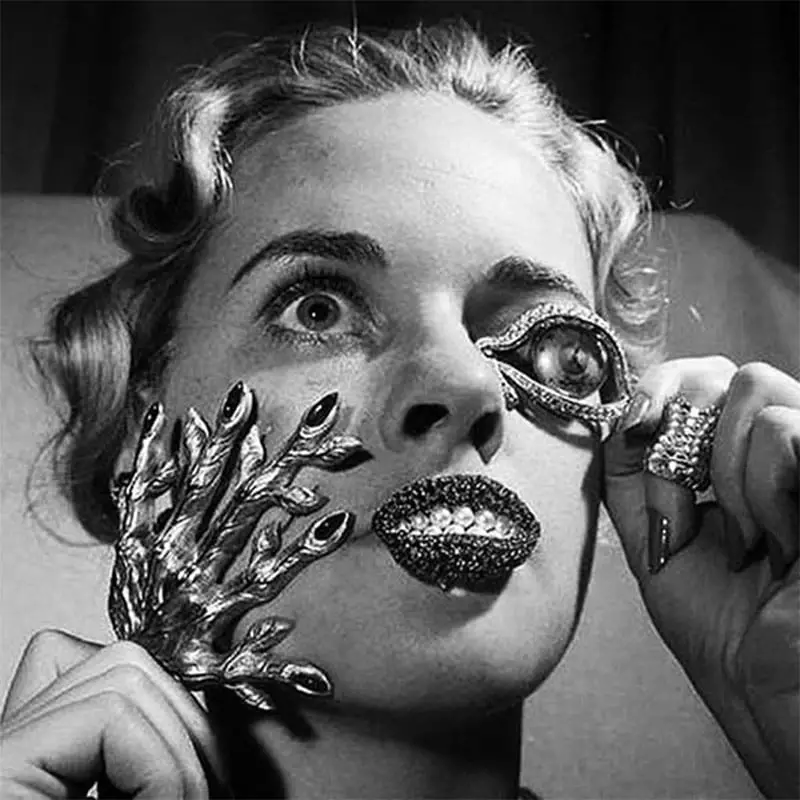
Schiaparelli 2021 Haute Couture and Jewelry Collection
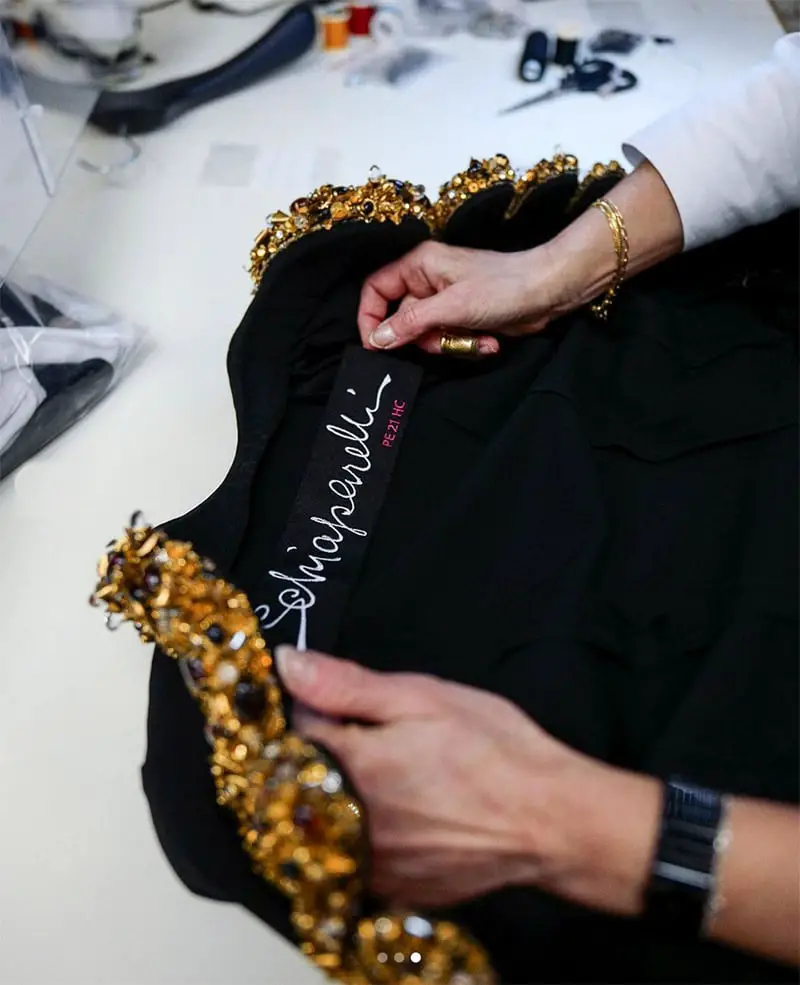
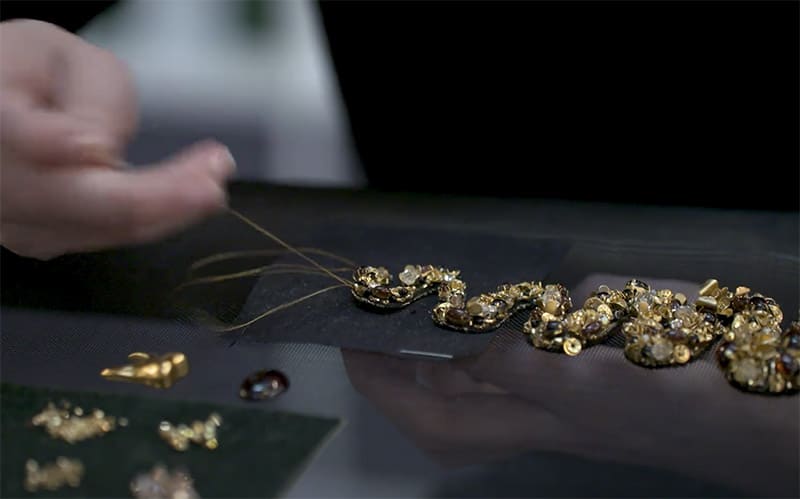
For my third collection for Schiaparelli, I wanted to challenge the idea of what couture is, and should be, by making clothes that respect the tradition of not only this Maison, but the artistry behind it, while at the same time exploding the cliches associated with the genre. These are clothes that make you aware of the fact of your body, that make you think about how you move through the world.- Daniel Roseberry
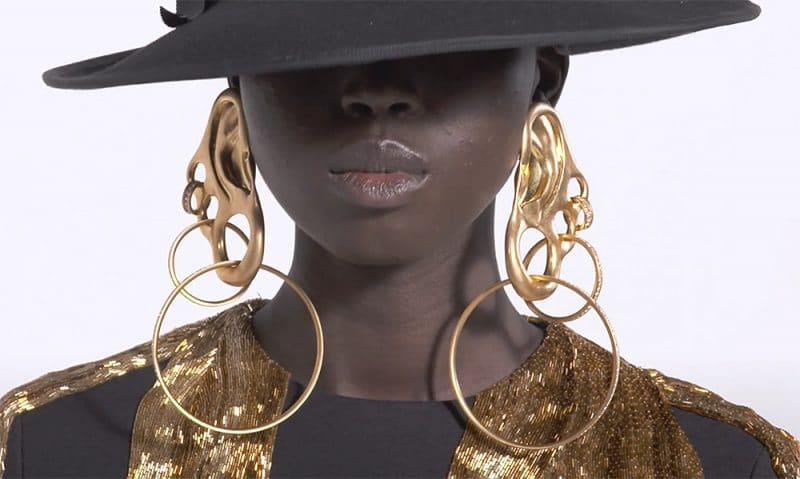
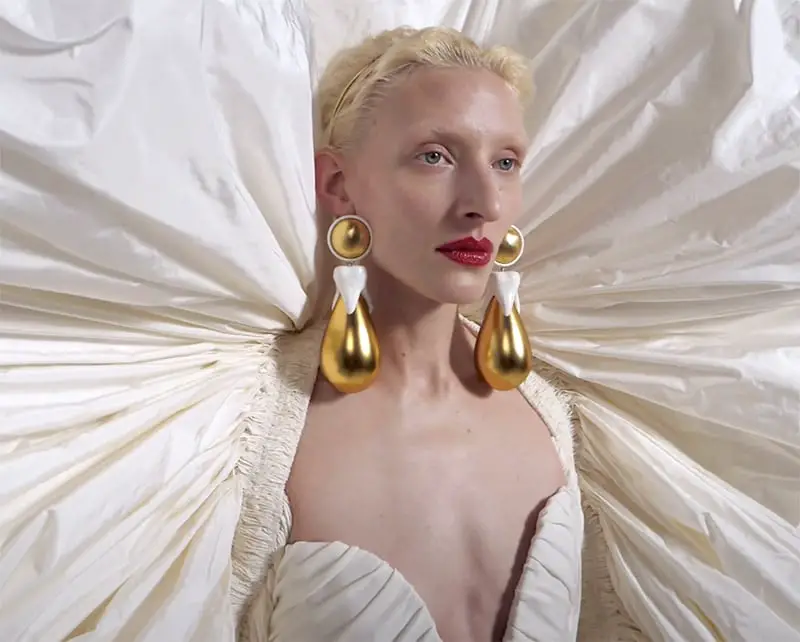
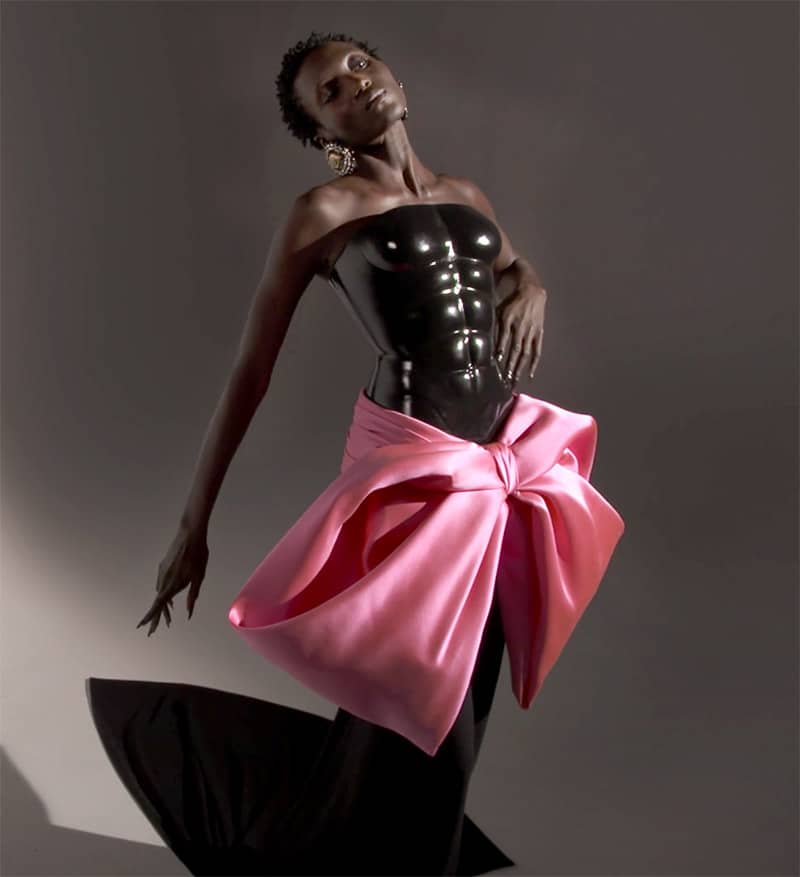
I cannot write about this collection nearly as well as the brand’s Artistic Director Daniel Roseberry. That said, the text below is a description of the collection in his own words accompanied by fabulous photos (and some video screen grabs) of all the pieces.
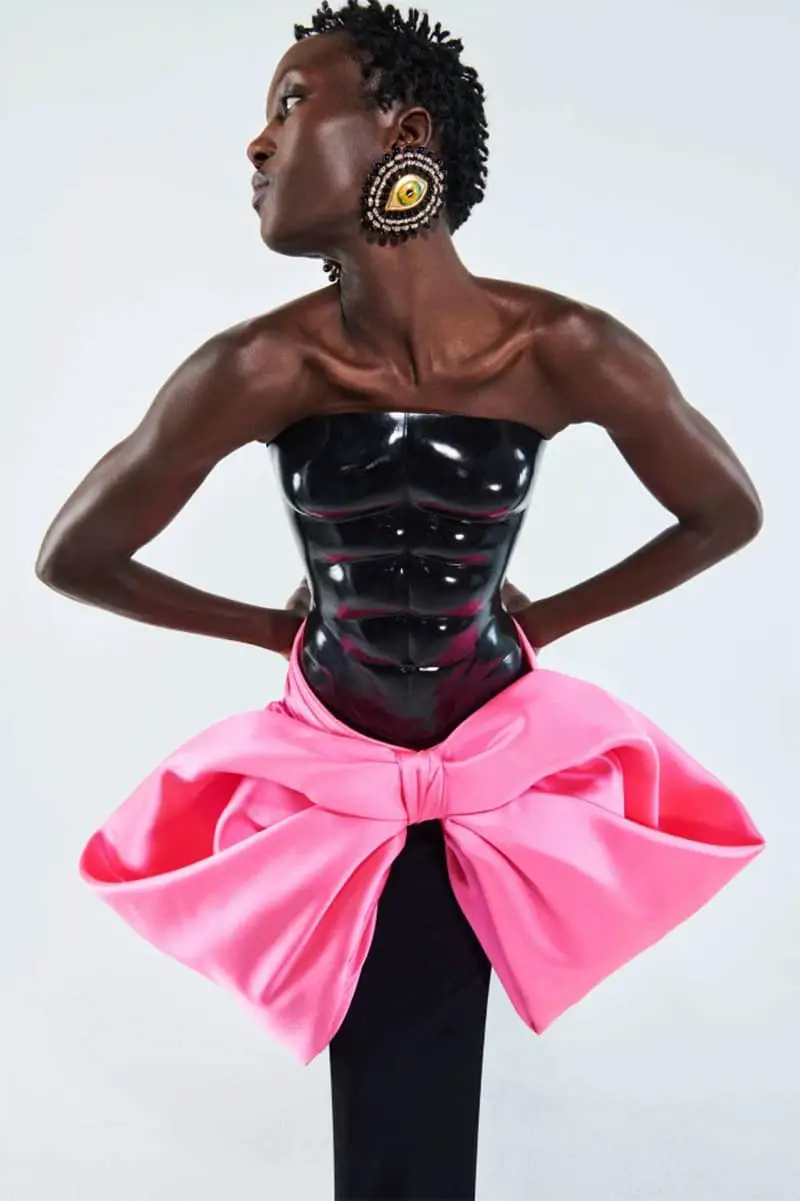
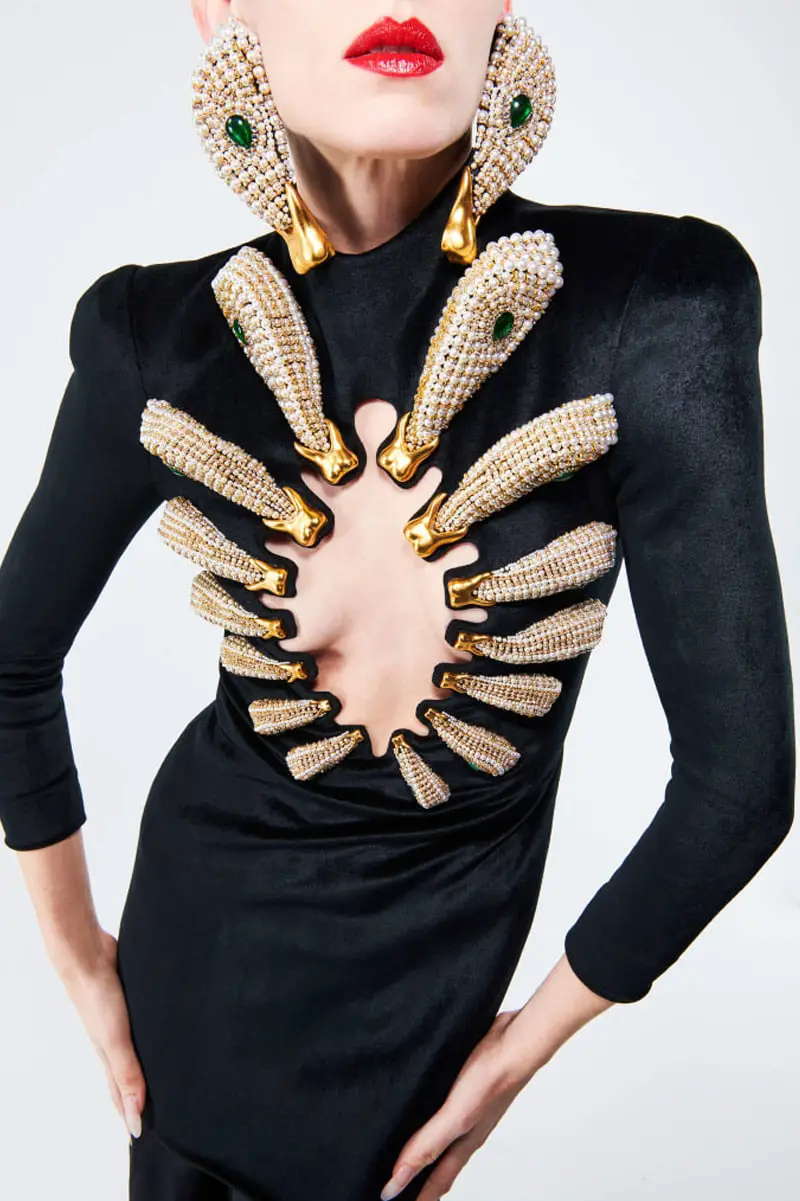
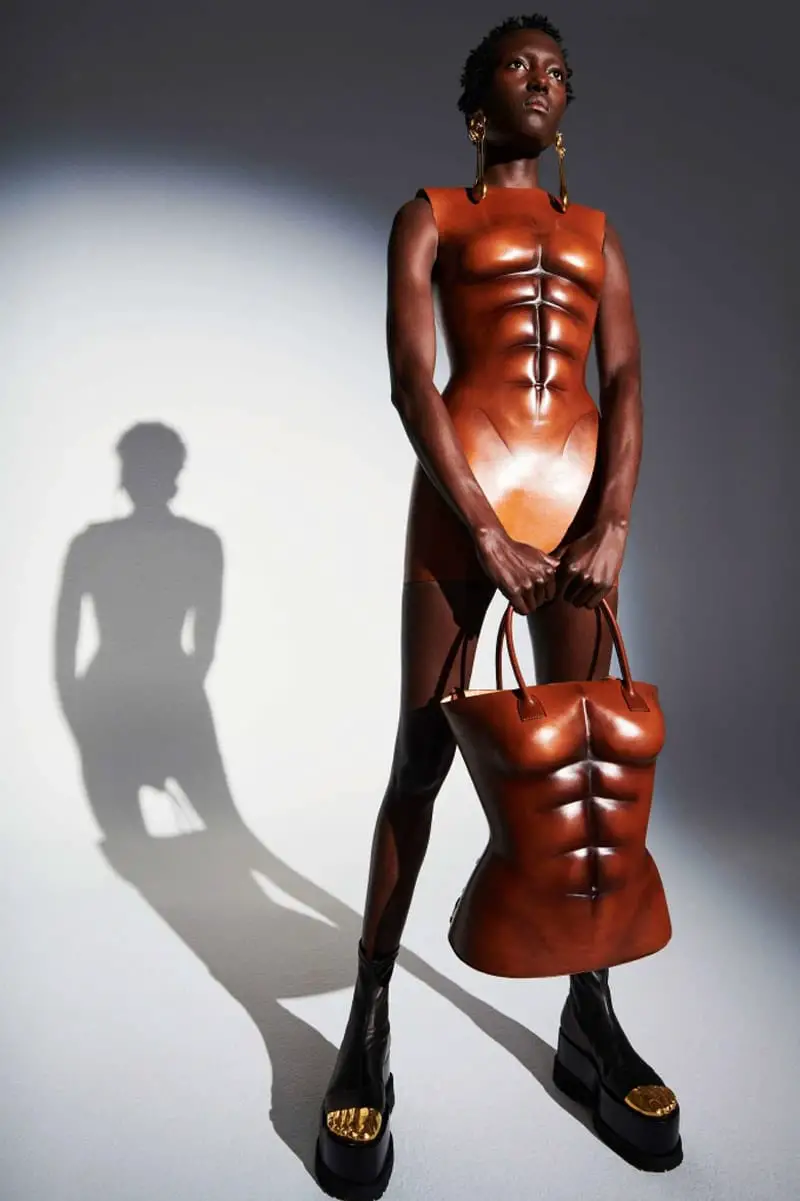
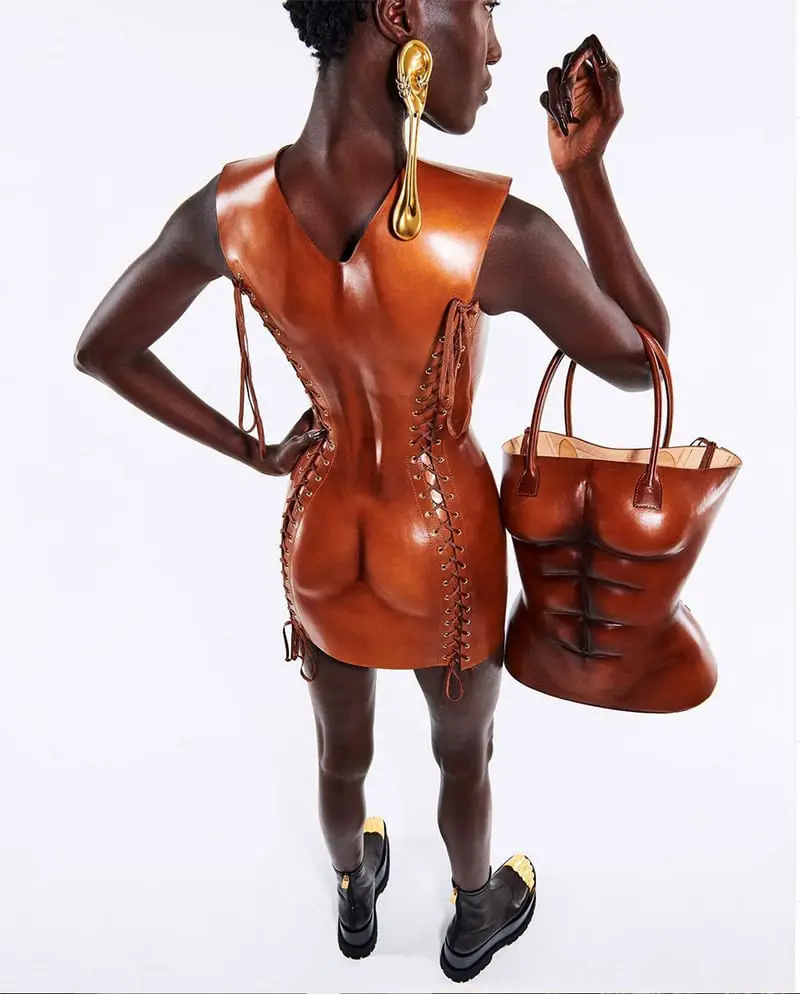
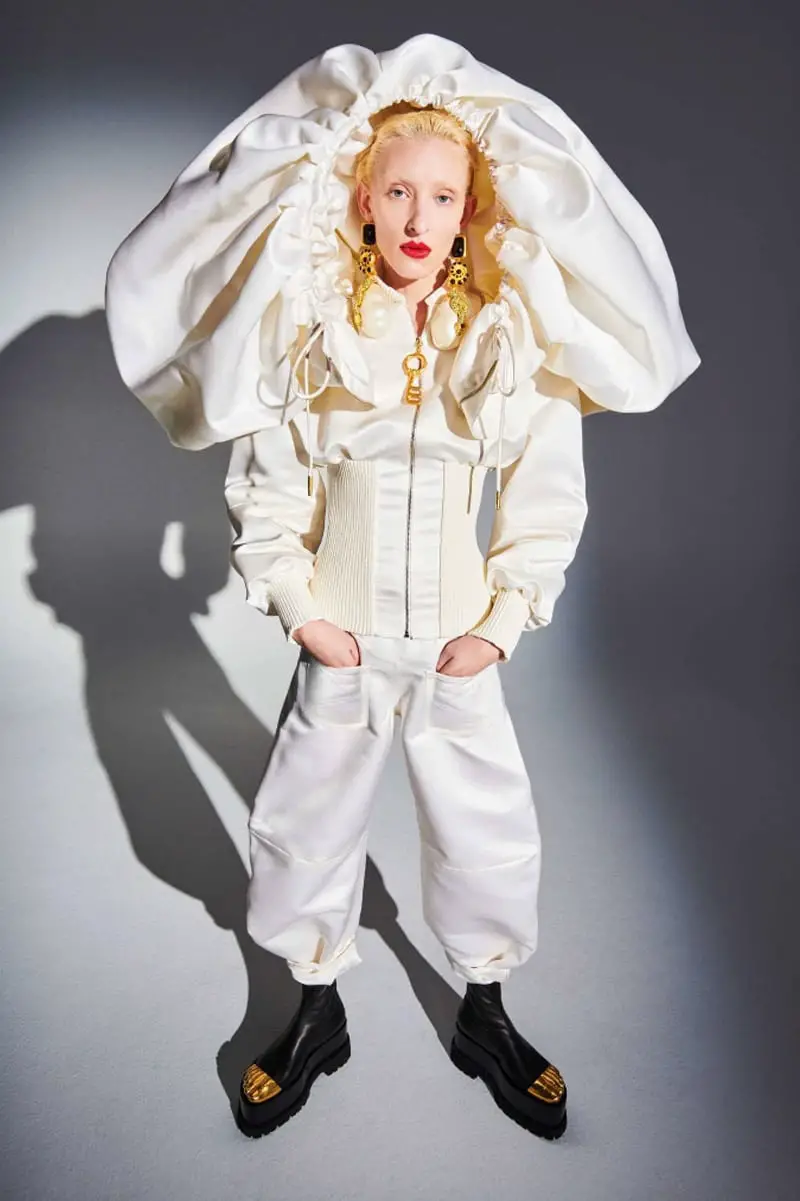
“Here is what the word “couture” conjures in the popular imagination: delicate embroidery, fragile as lace; skirts made from yards of silk; dresses as inoffensively pretty as something from a fairy tale—a vision unchanged from couture’s pinnacle in the 1950s.
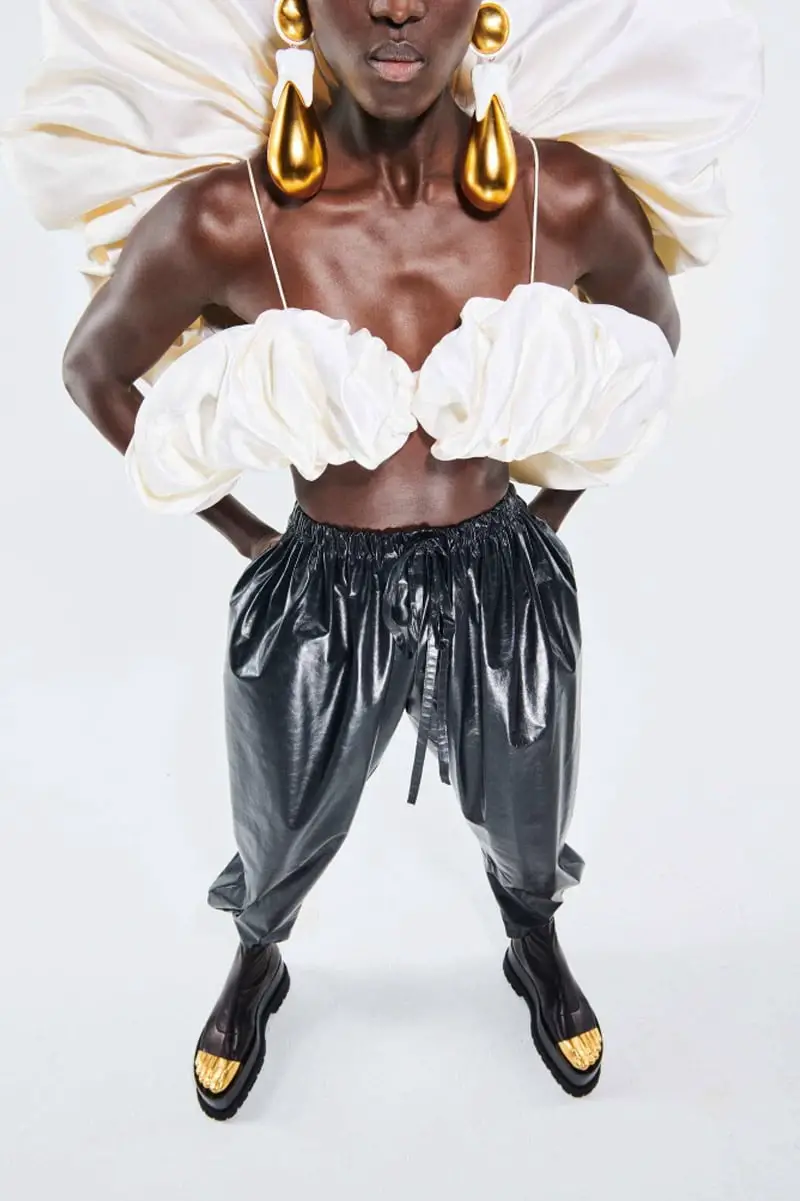
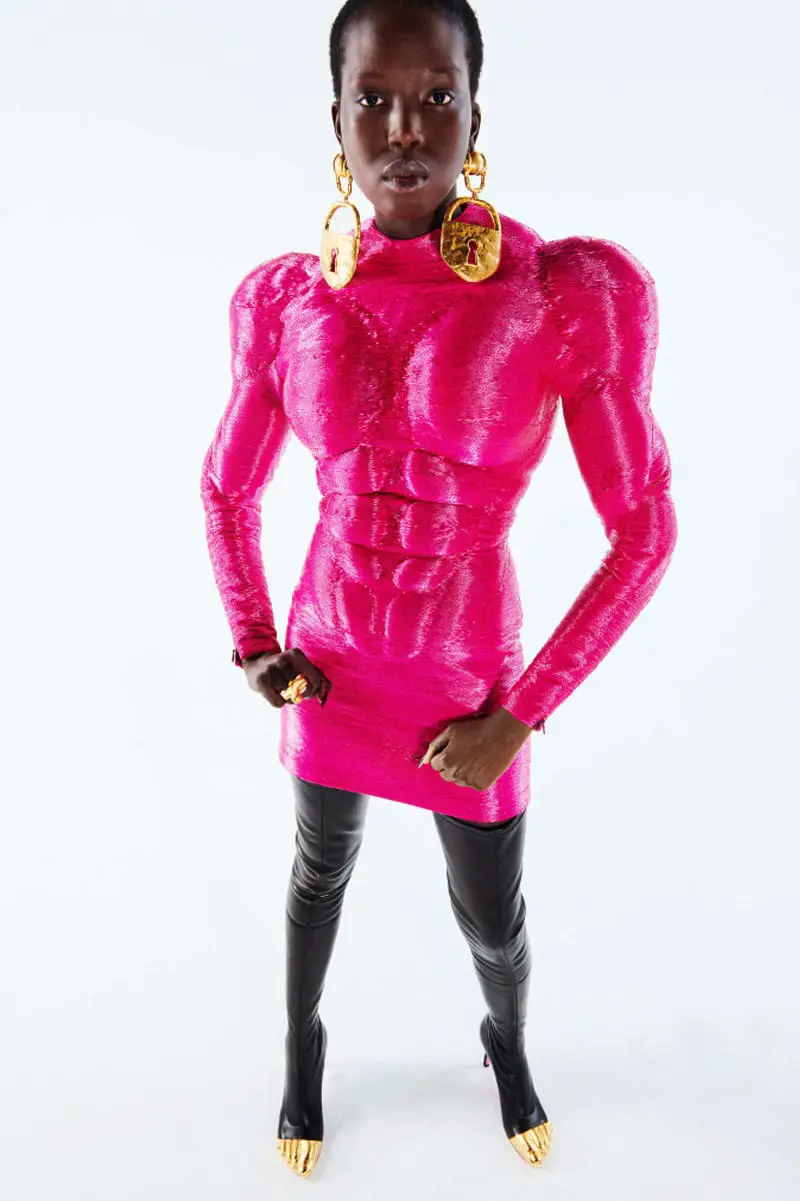
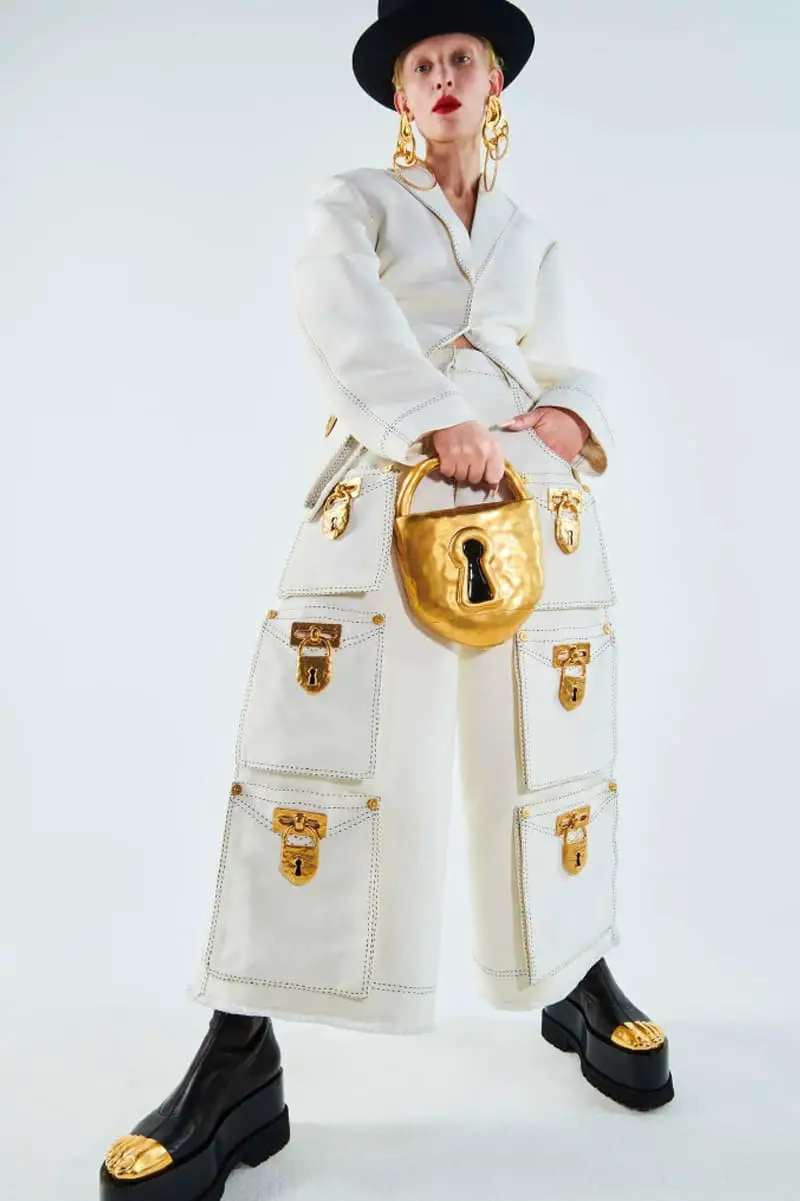
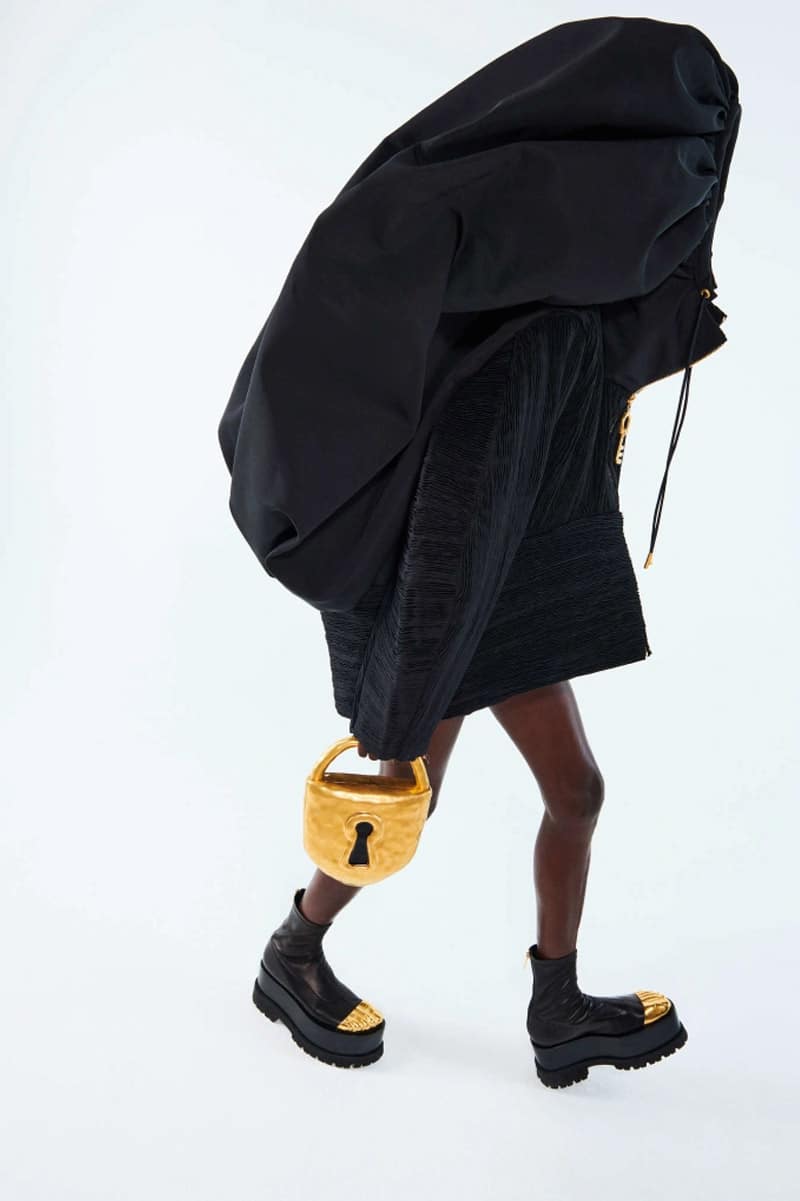
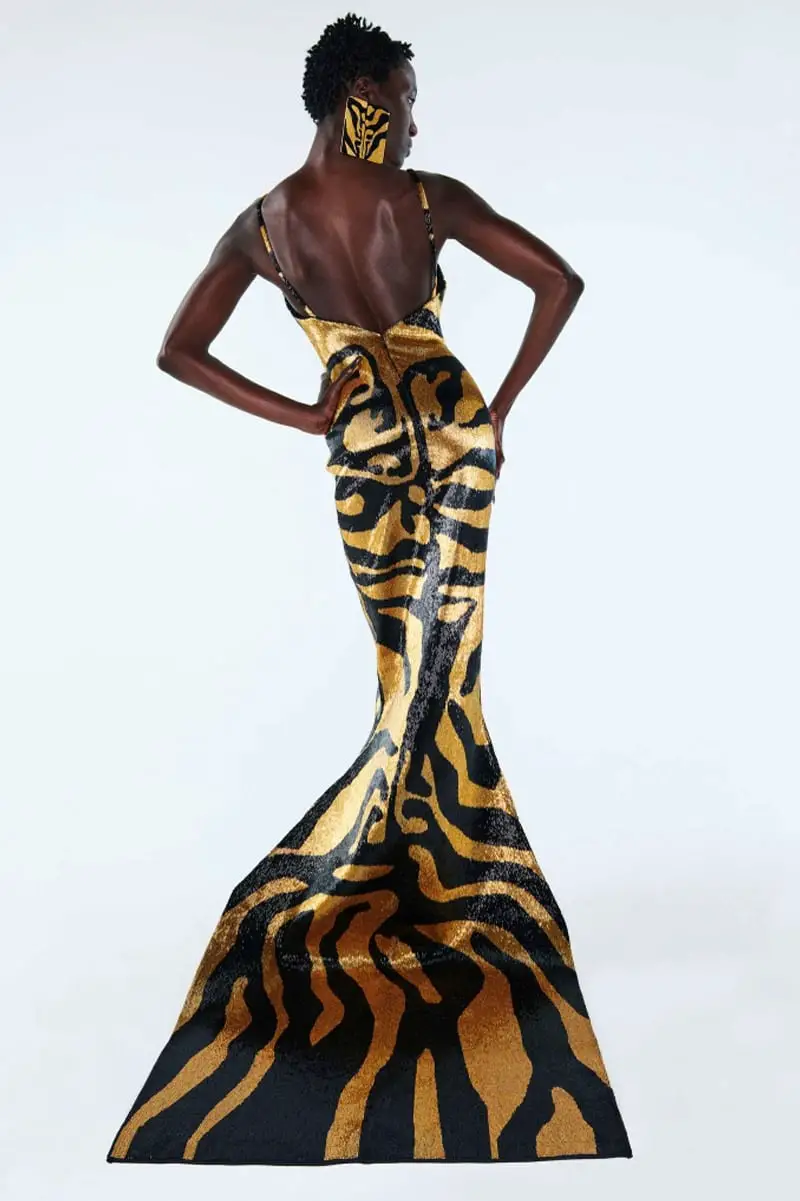
But who says this is what couture has to be? In this, my third collection for Schiaparelli, I wanted to challenge the idea of what couture is, and should be, by making clothes that respect the tradition of not only this Maison, but the artistry behind it, while at the same time exploding the cliches associated with the genre. I want to make an alternative couture house: Here, the fantasy isn’t princess dresses or polite garments; here, the fantasy is within. These are clothes that make you aware of the fact of your body, that make you think about how you move through the world. Elsa Schiaparelli also made clothes that torqued the body, but her intentions were never macabre; instead, she encouraged a childlike, un-neurotic exploration of the human form. Hers were garments means to celebrate the joy of peacocking, the joy of showing off.
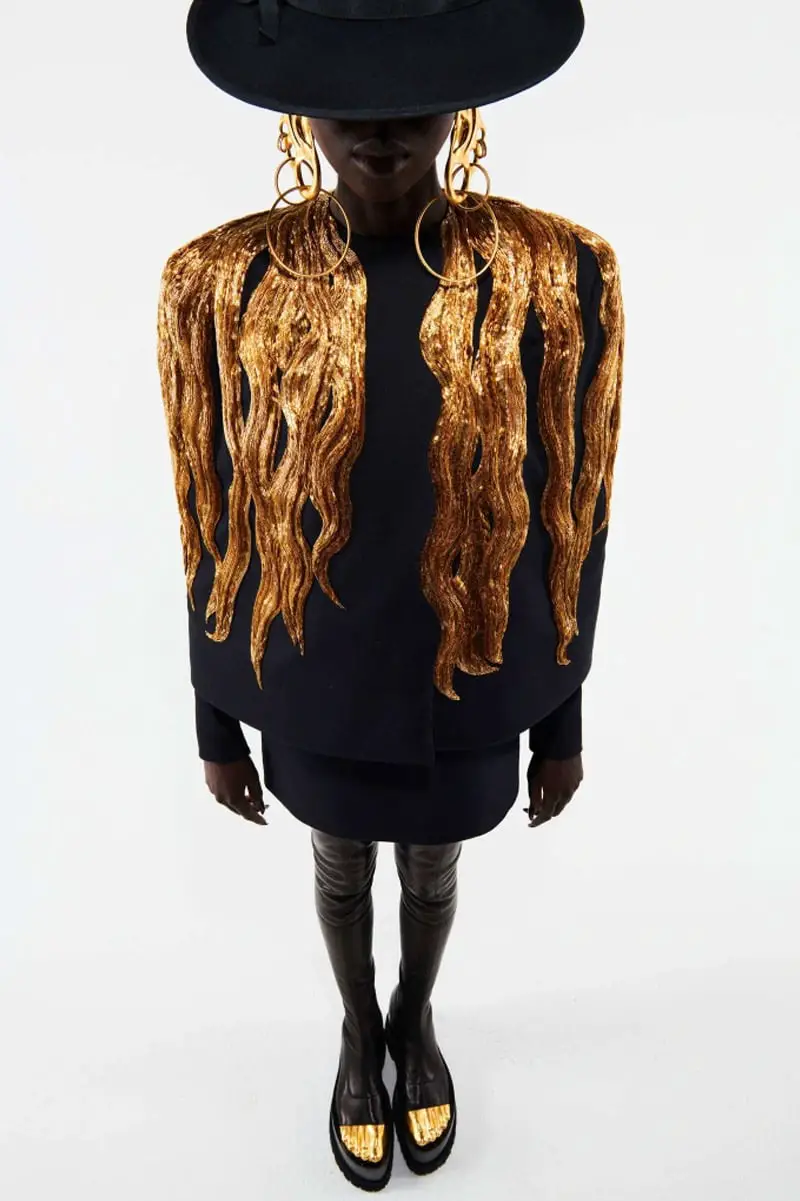
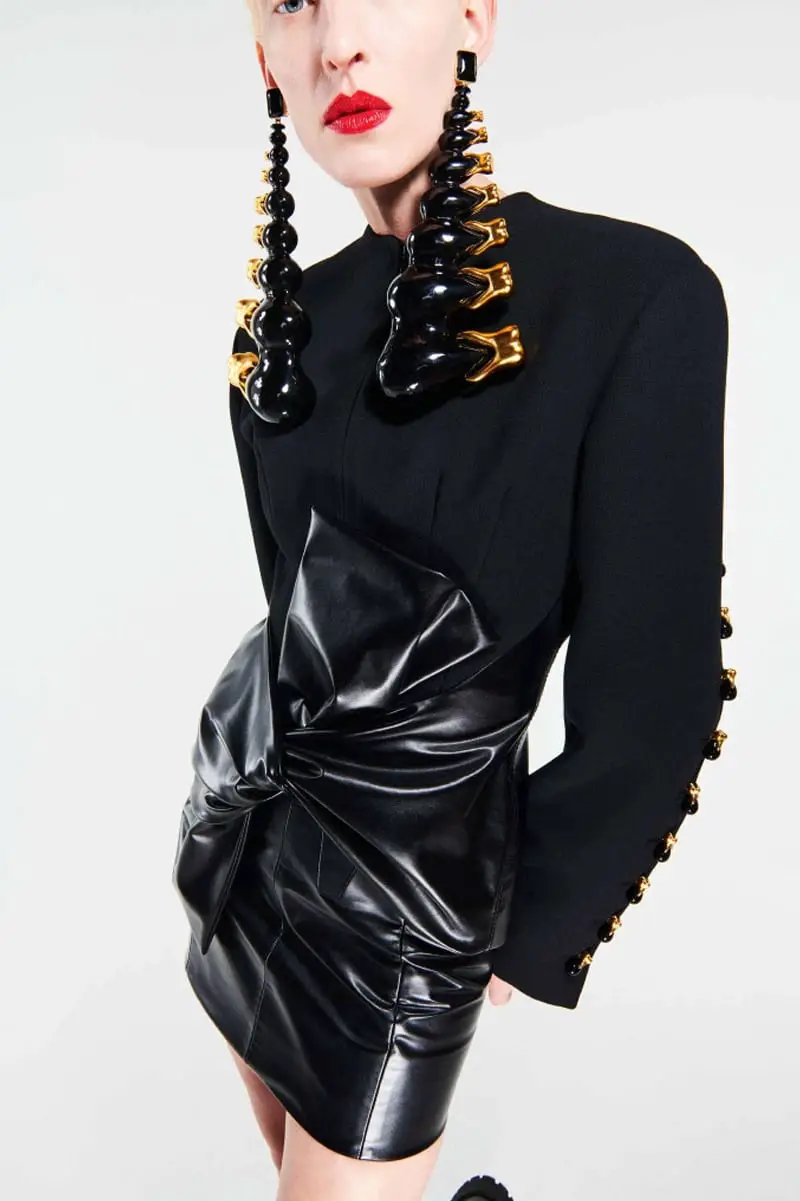
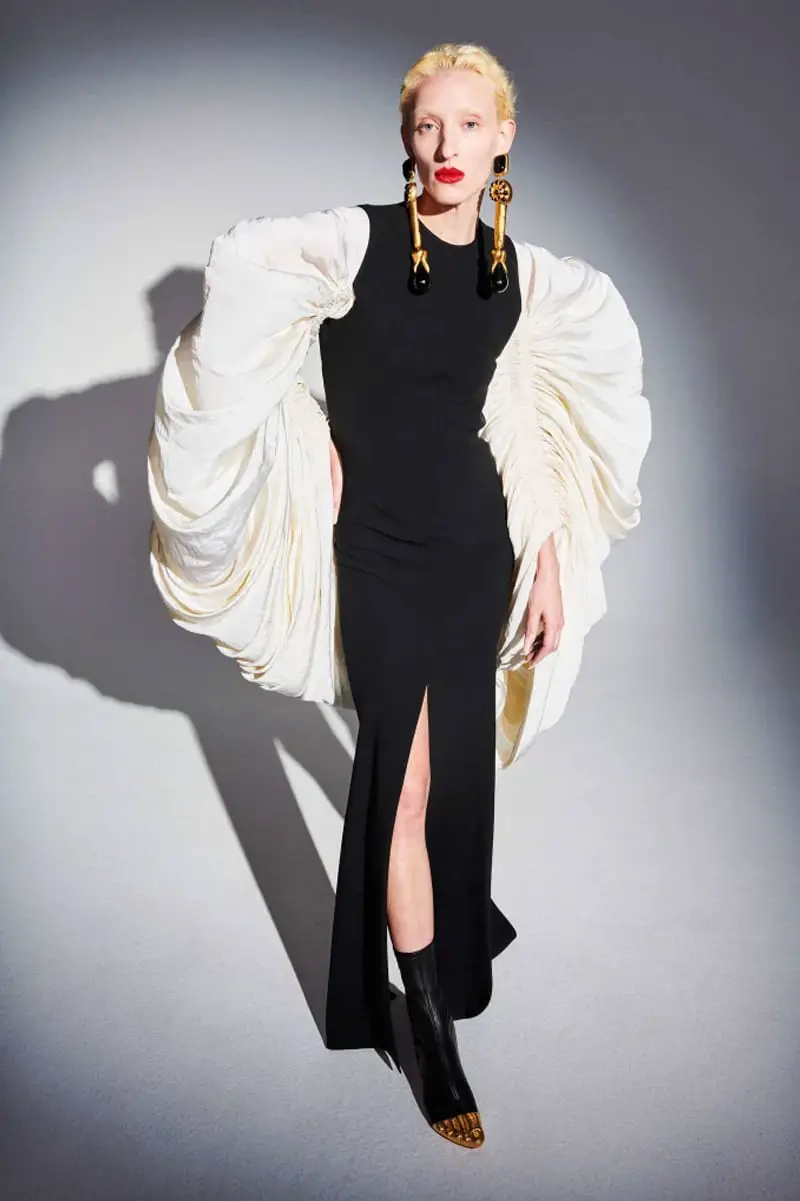
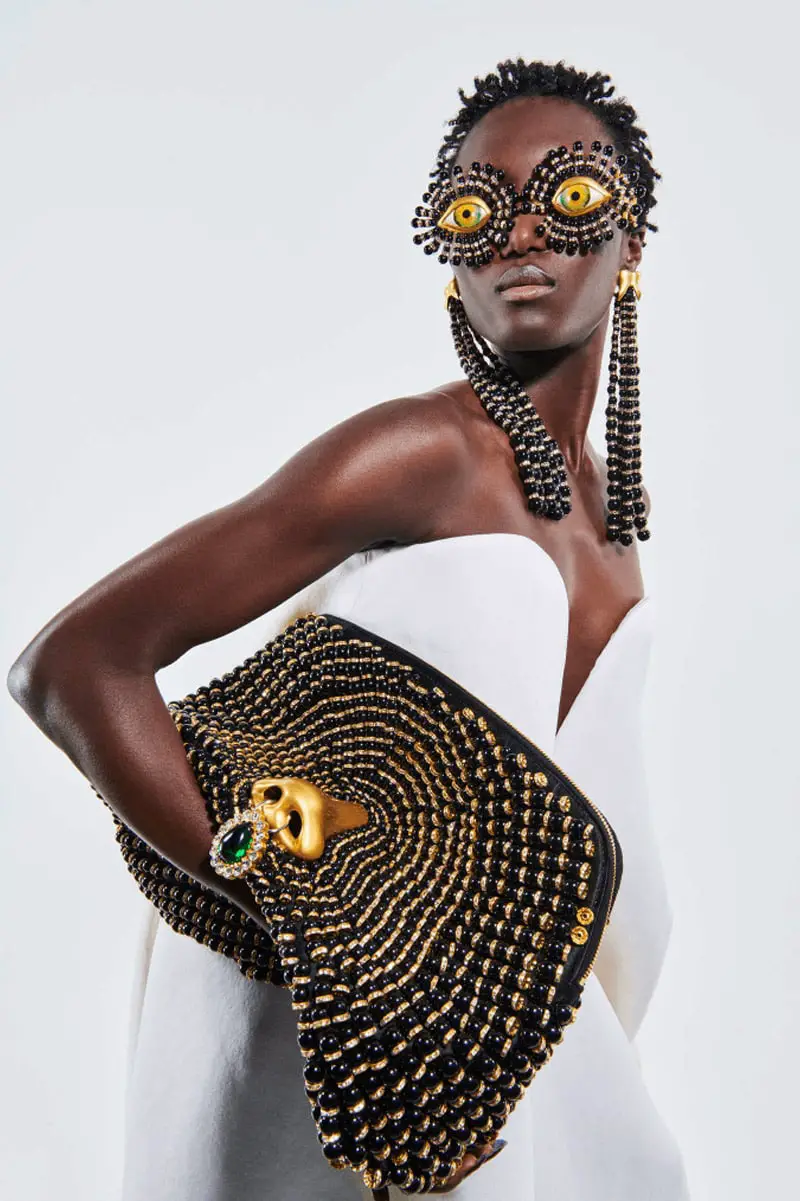
We started by discarding the usual silhouettes of couture. I wanted to take pieces that aren’t “supposed” to be shown in this context—pants, for example; a bomber jacket—and invite people to see them anew. The techniques, too, are unexpected: a pair of blouson leather pants has an elastic waist; a pair of denim jeans is reimagined in stone washed silk duchess and embellished with dangling gold padlocks. The fabrics are equally inventive and disruptive: along with overdyed silk faille, molded leather, and crisp dry hand taffeta, there’s also silk-velvet bonded to neoprene, and a column gown draped in sinuous silk jersey.
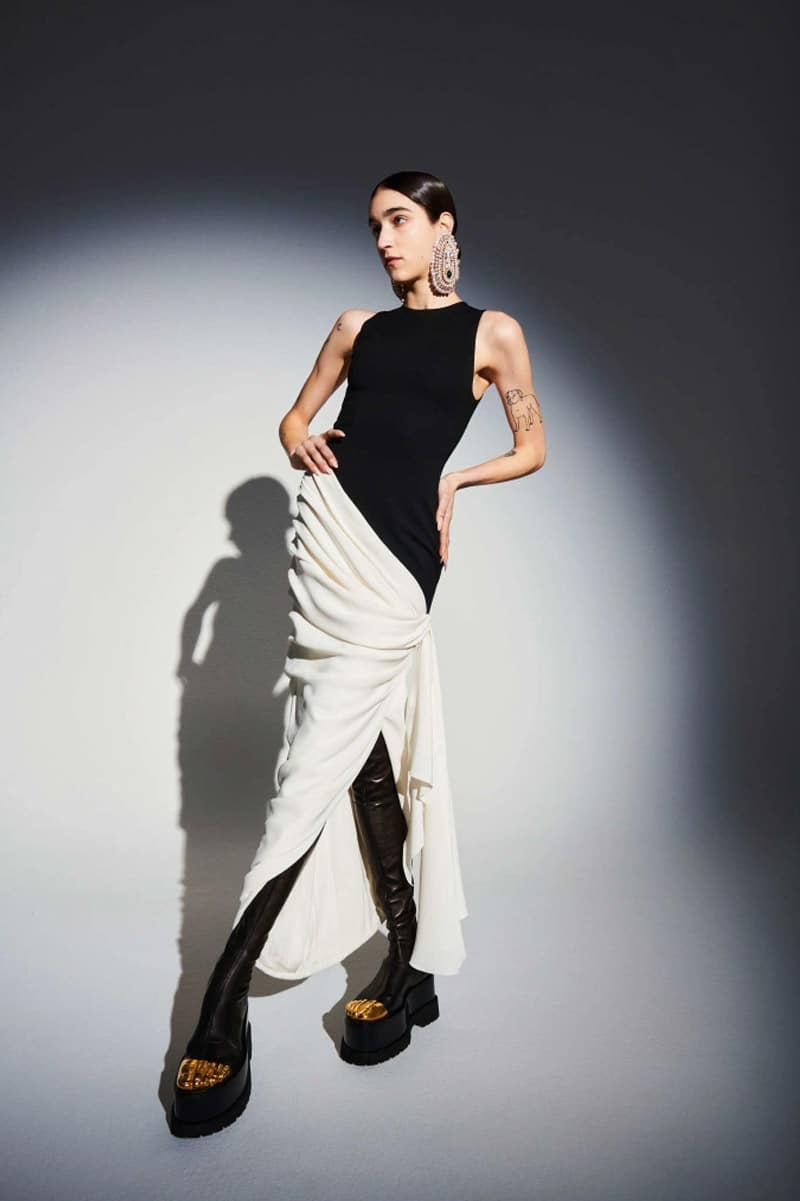
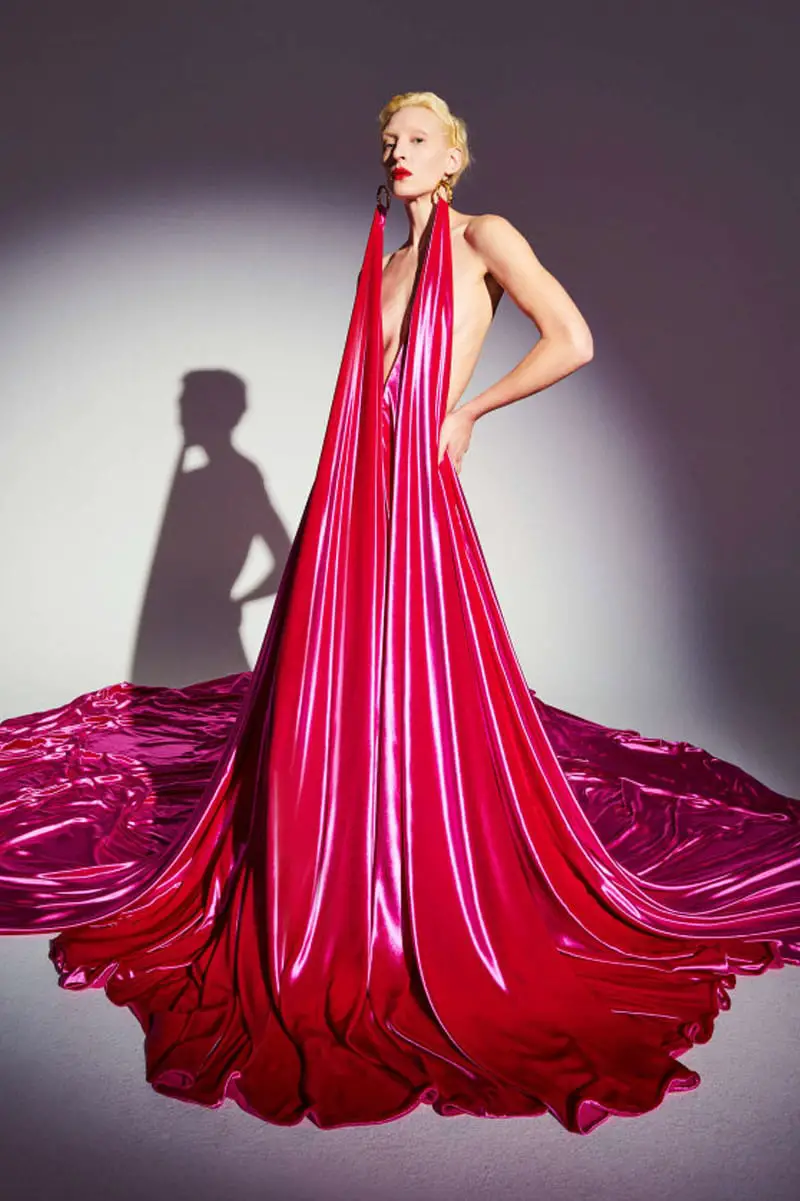
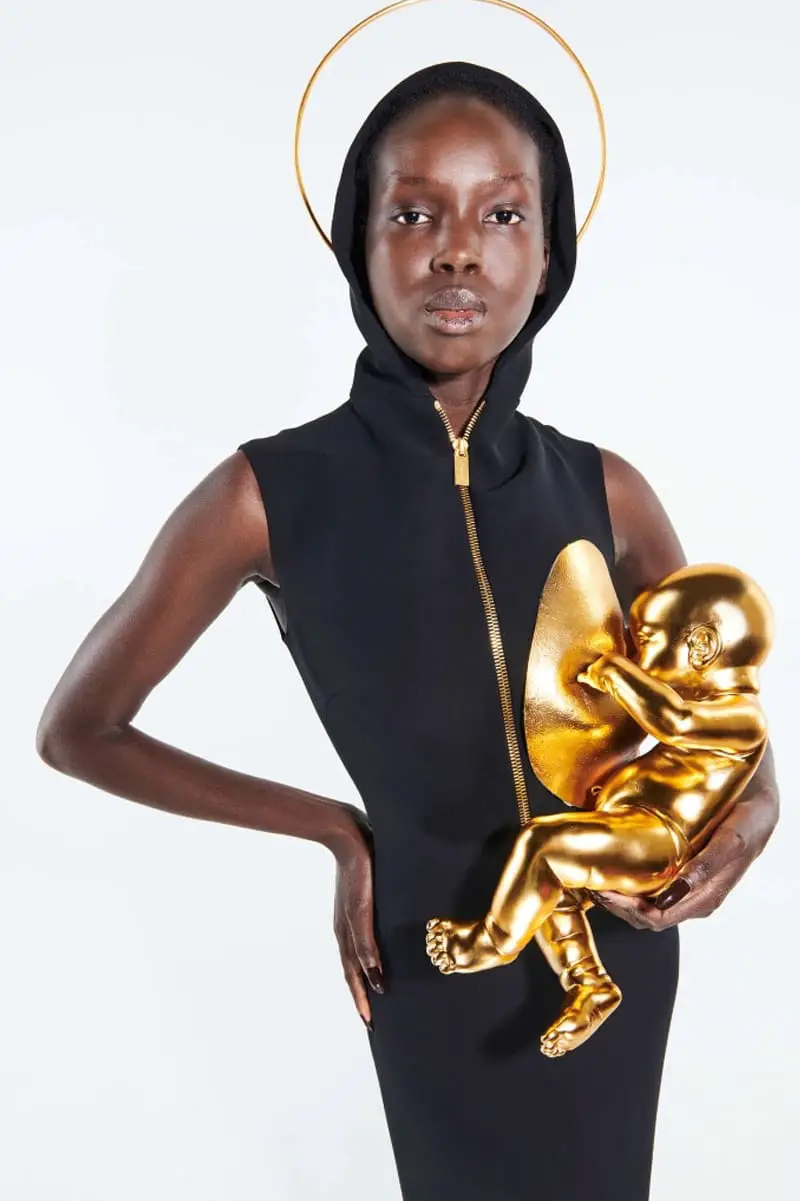
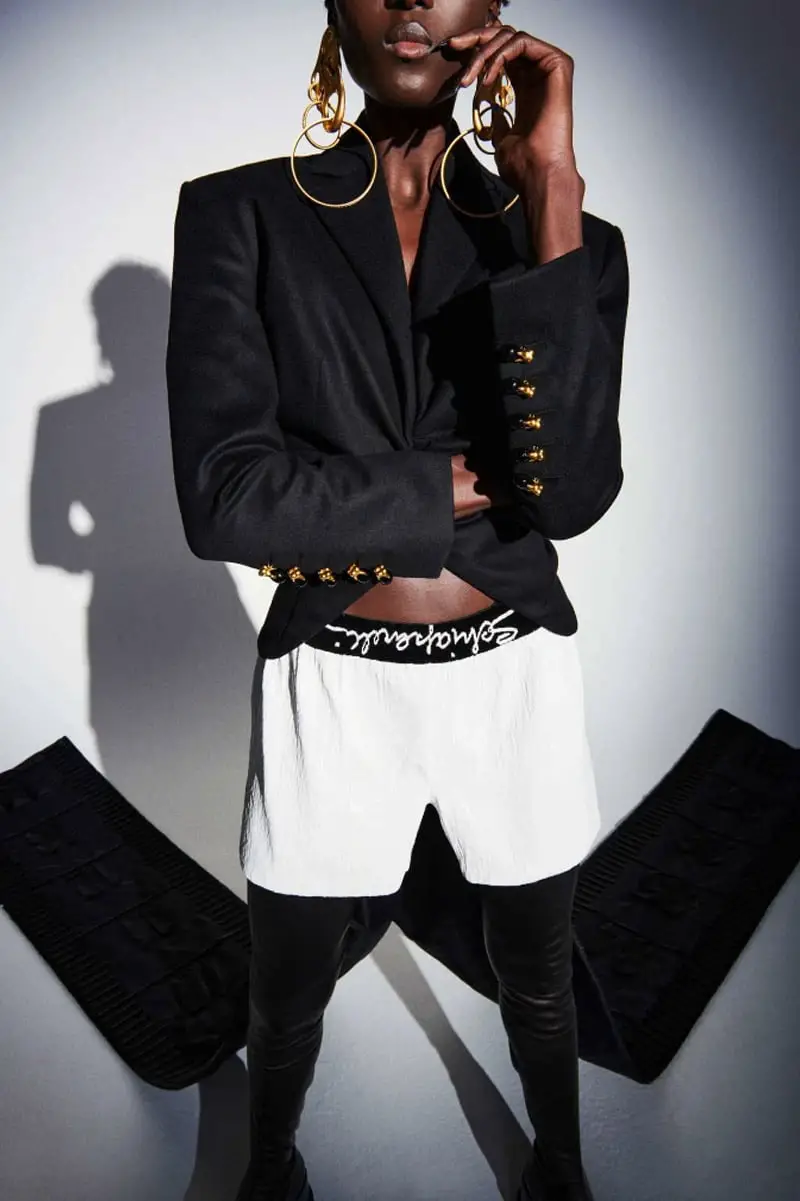
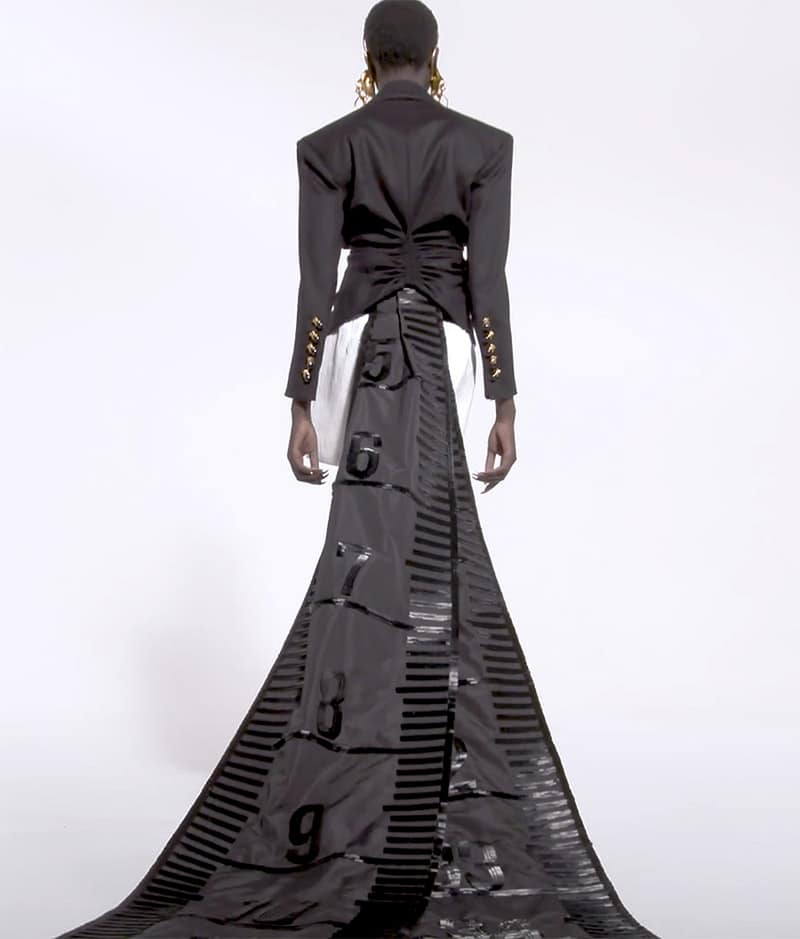
Yet as irreverent as all this seems, it actually follows in the legacy of the house and its founder. Elsa was a great technician: She loved fabric, and she especially loved technical innovations. She was the first couturier to use synthetic fabrics; she was the first to incorporate plastic zippers into her work. Her ambition was to experiment, to be disobedient, in all things: fabrication, shape, color, iconography.
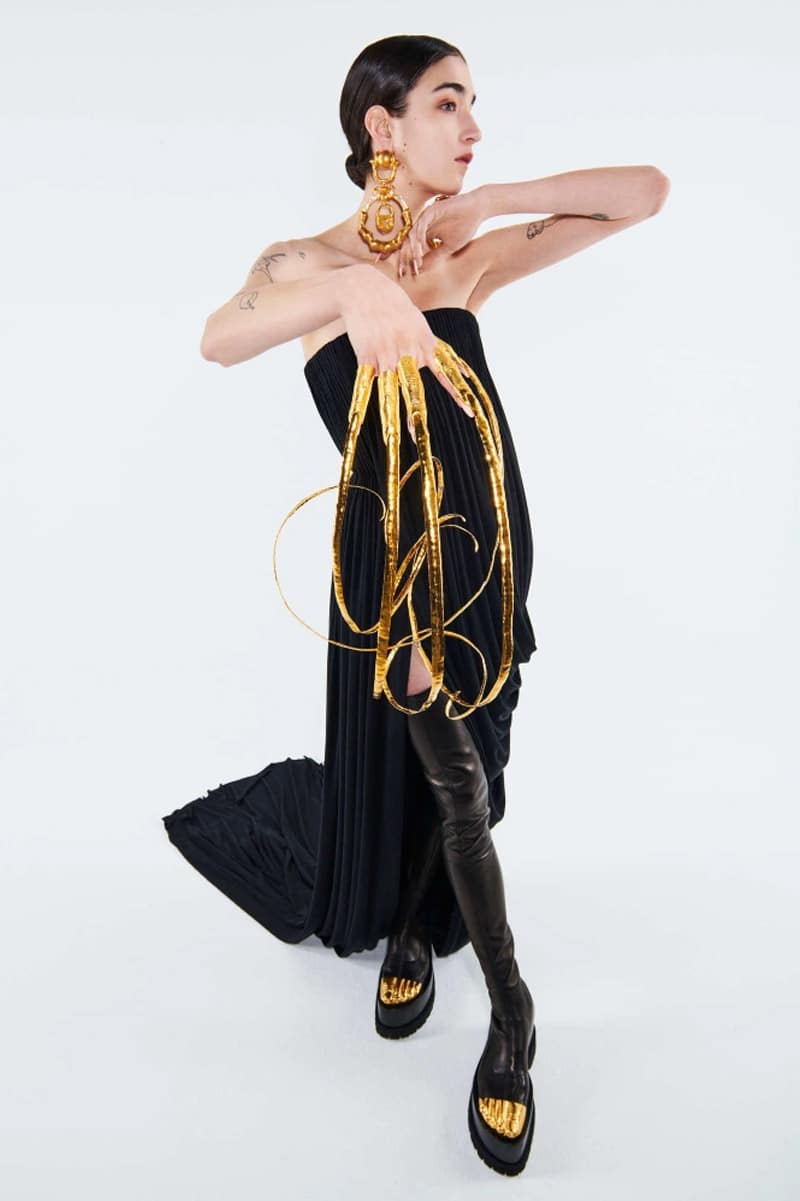
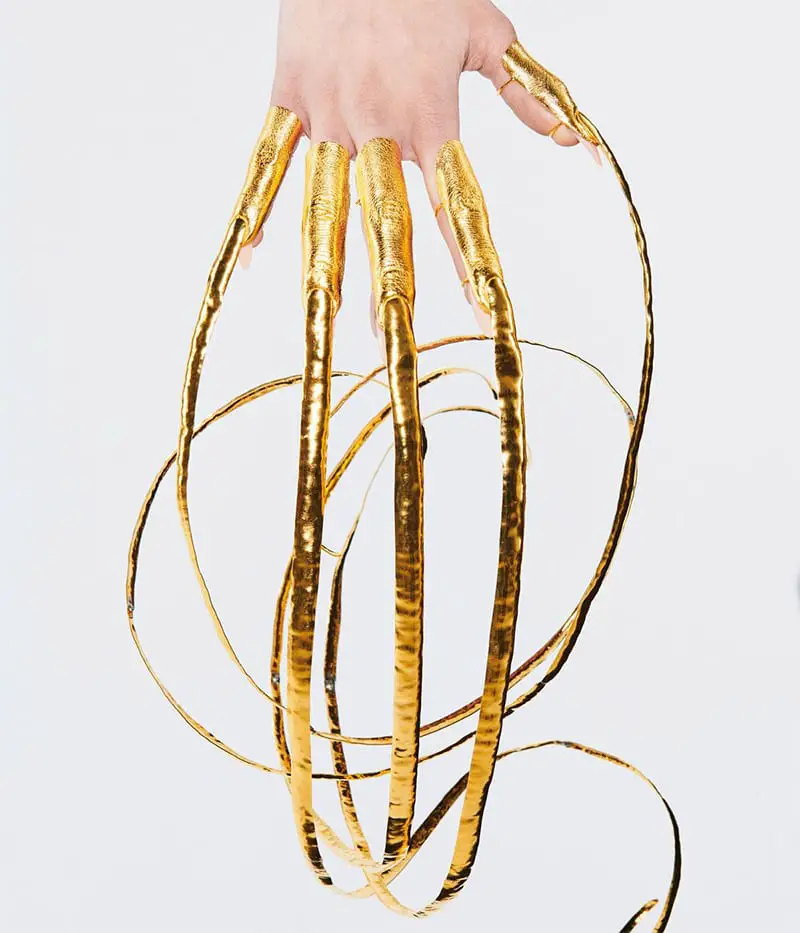
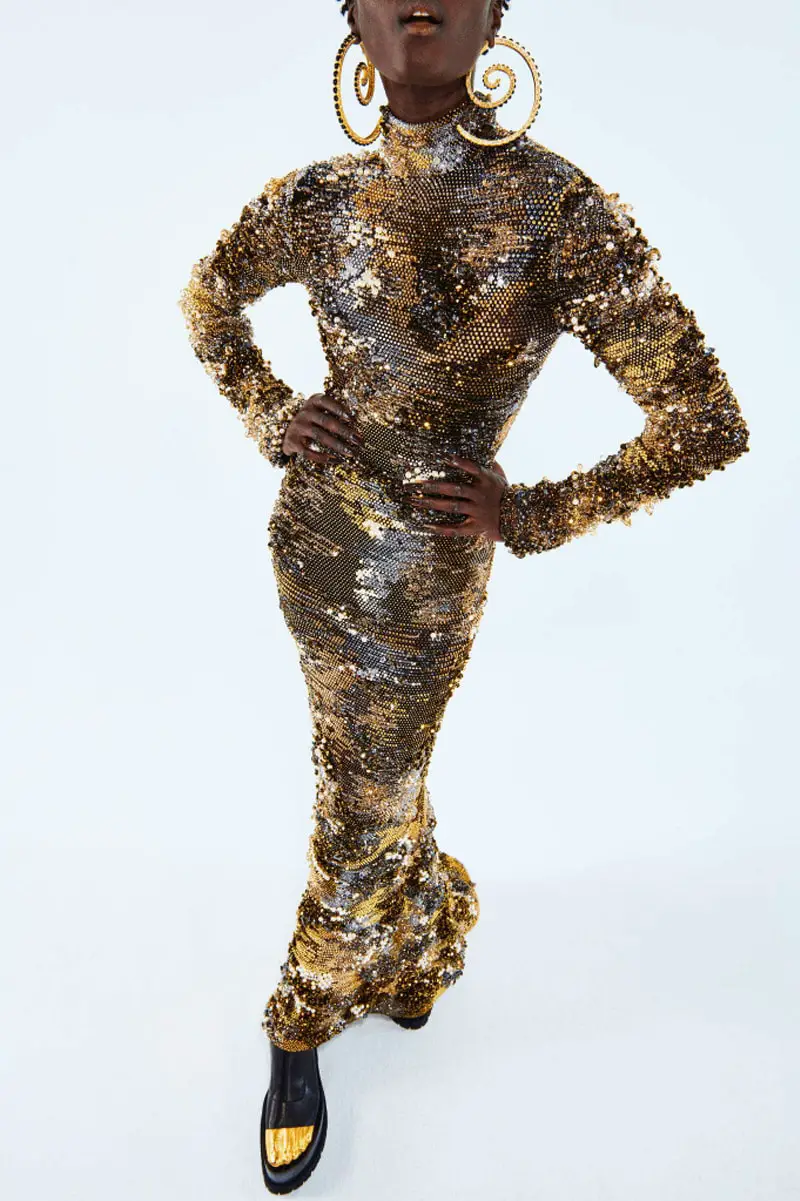
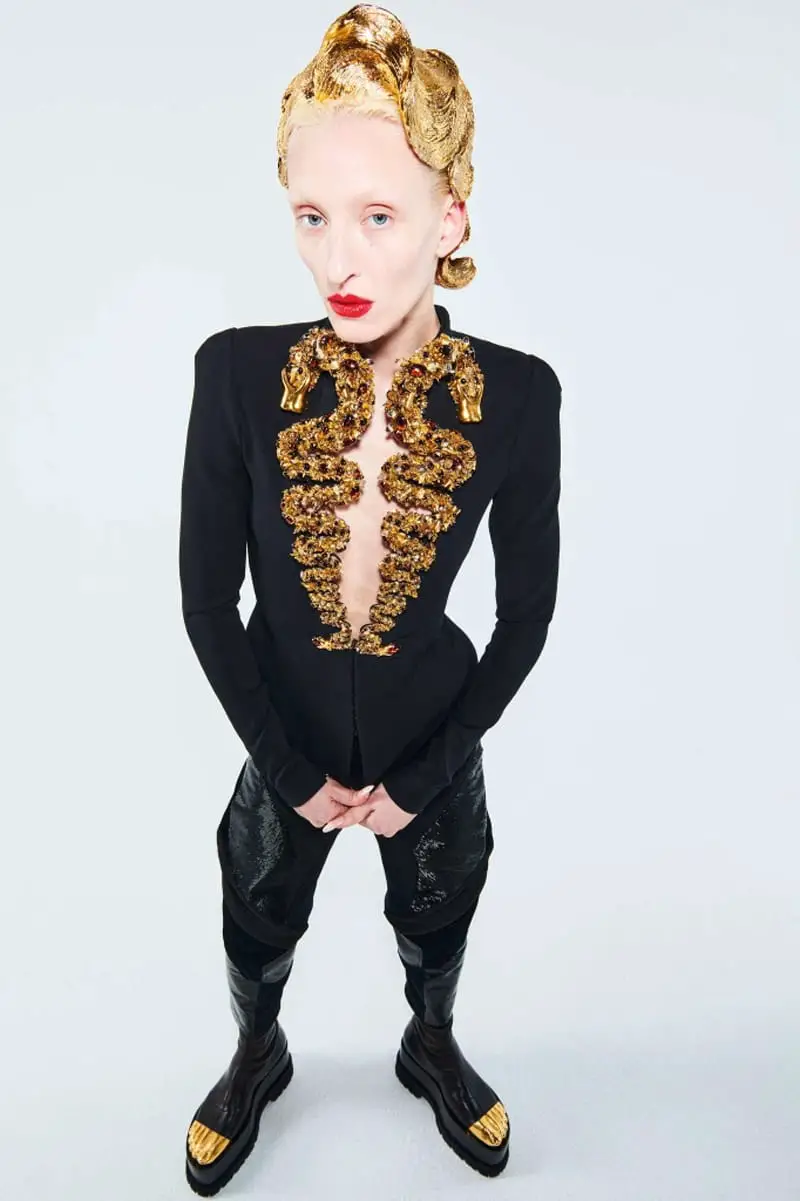
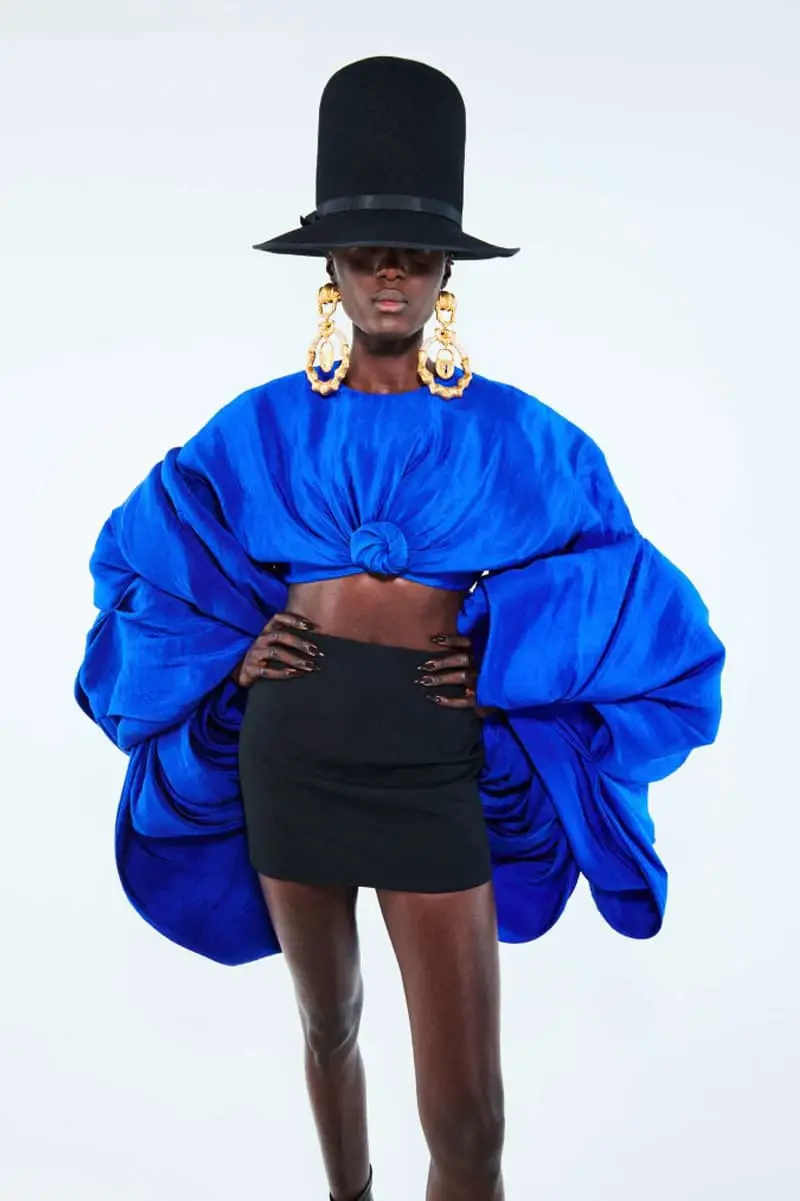
To that end, we referenced many of the codes—and looks—she invented, both directly and indirectly. Our basketweave wool cape, embellished with thousands of gold bugle beads, invokes her 1938 hooded veil embroidered to look like hair. You’ll also see her signature padlock, reimagined here as a hard-shelled minaudière; her measuring tape, blown out into an exaggerated, embellished silk faille train.
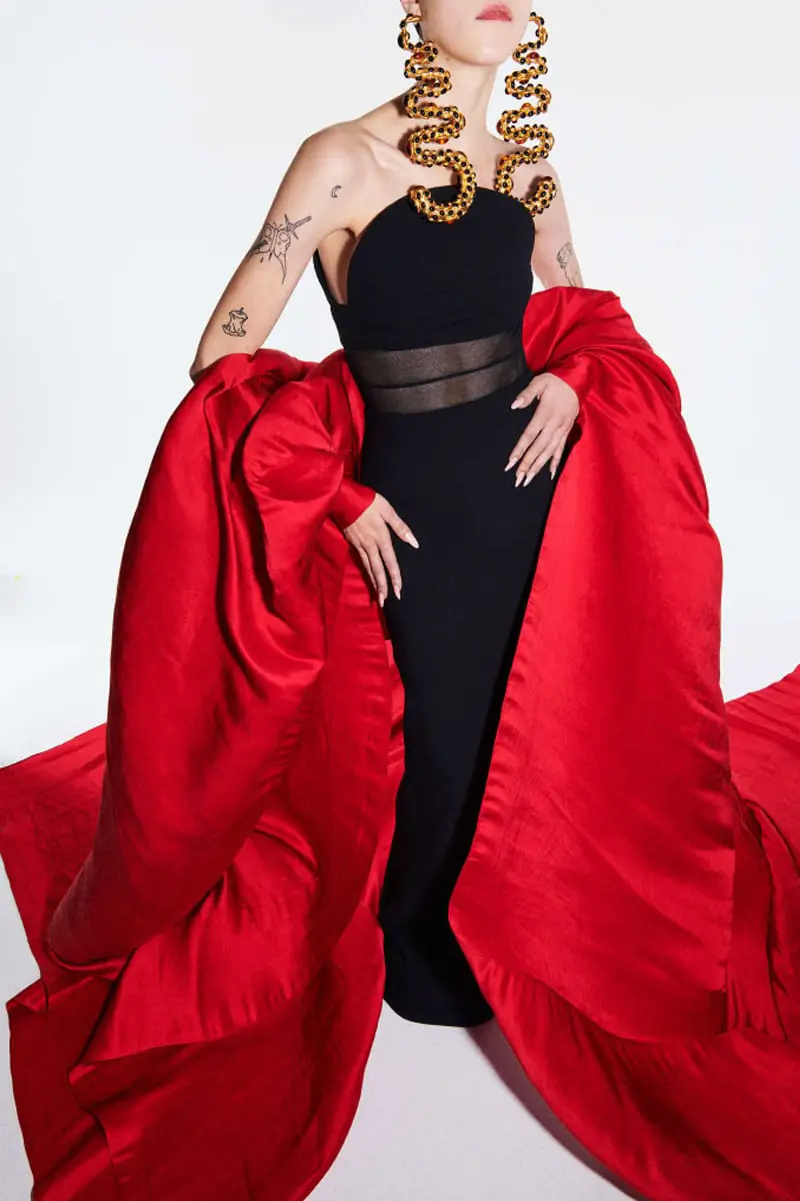
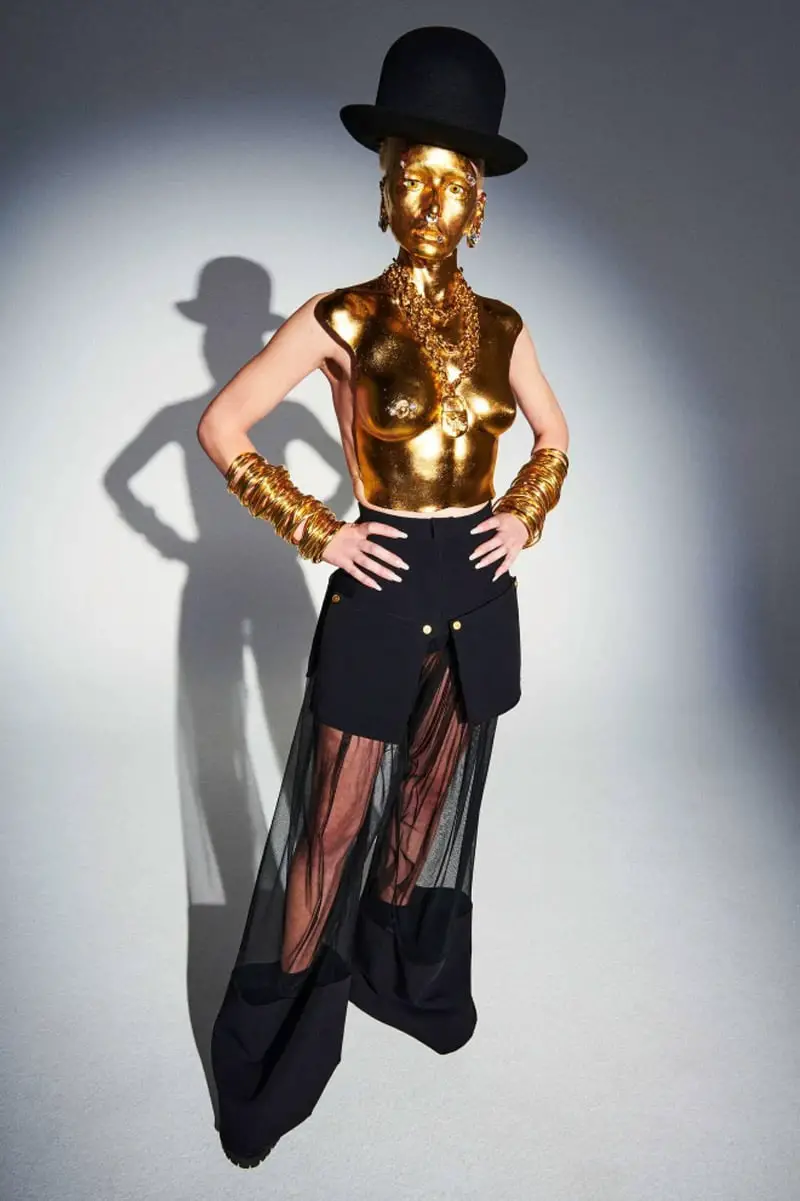
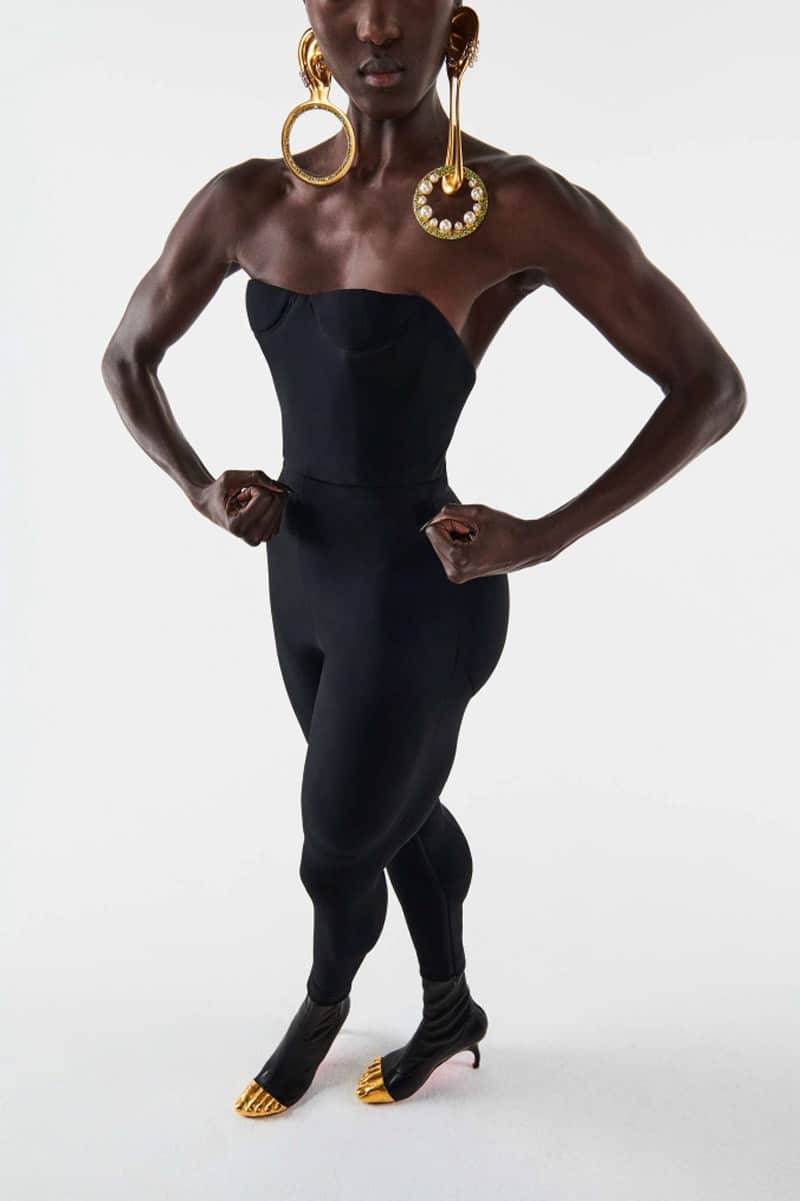
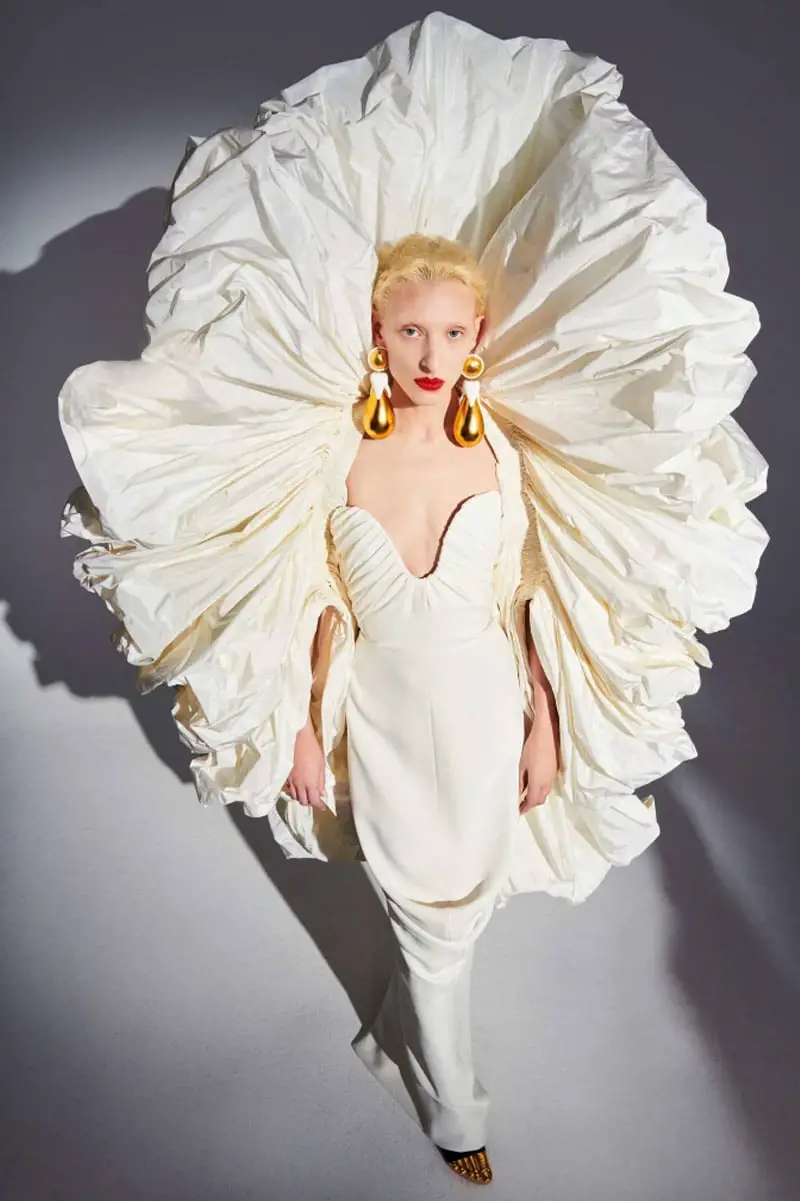
One thing that a couture atelier can uniquely do is embellishments, and these pieces are dazzling examples of the art of embroidery and beading. I’ve always admired how Elsa embroidered pieces—in an era in which embroidery had a whispery, almost recessive quality, hers were barbaric and unapologetic. I tried to bring that same spirit to this collection; here, the embroidery has an almost raw feeling to it: It’s treated like decoration, almost like jewelry—the hand of the artisan who made it is unignorable (sic). It’s a fitting complement to the silhouettes themselves, which have the same kind of boldness.
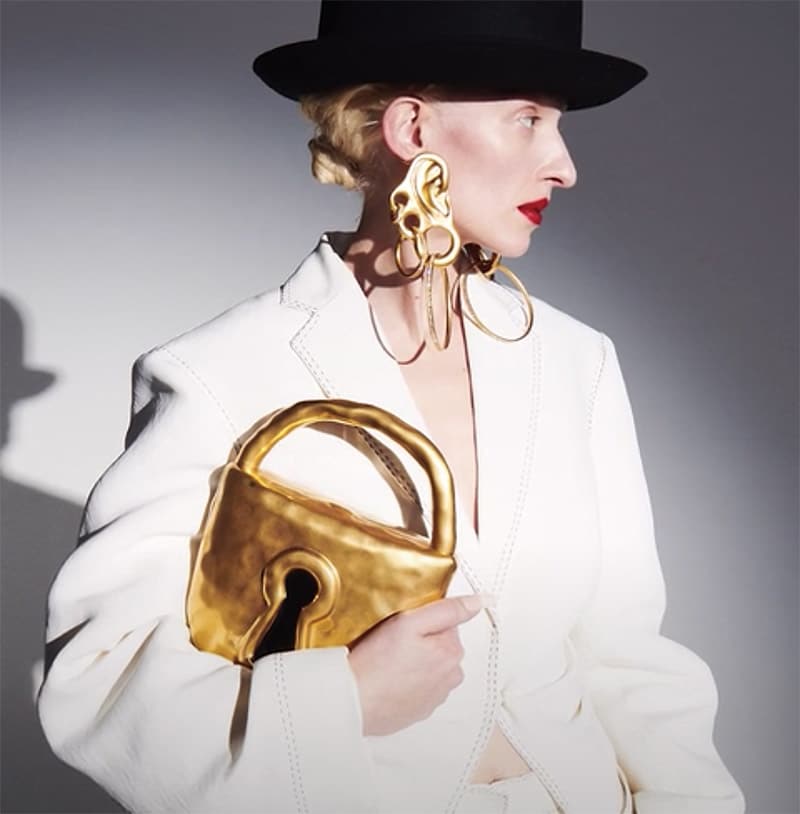
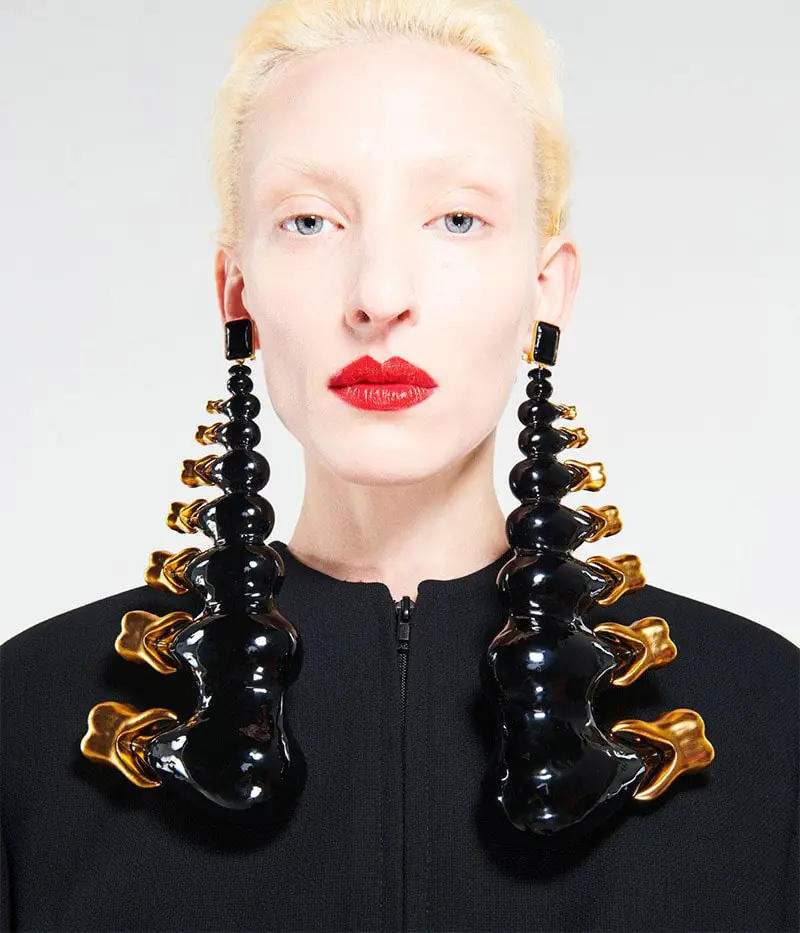
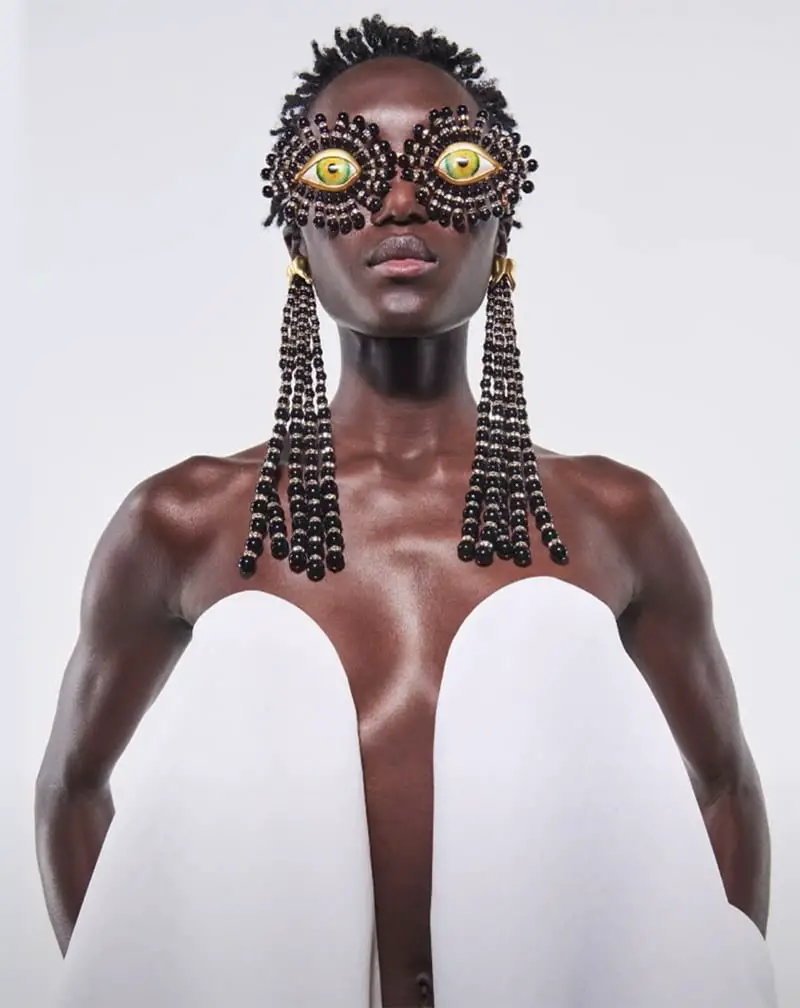
The word “magic” is often used when discussing couture. And it is magical. But behind the magic is a human hand and a human dedication. This collection is a tribute to both the work behind the magic—and the magic itself.”
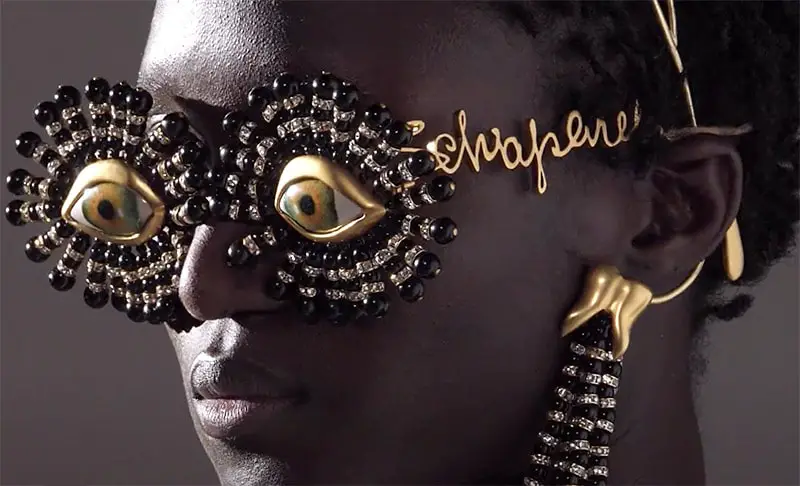
See videos of the making of the collection here
